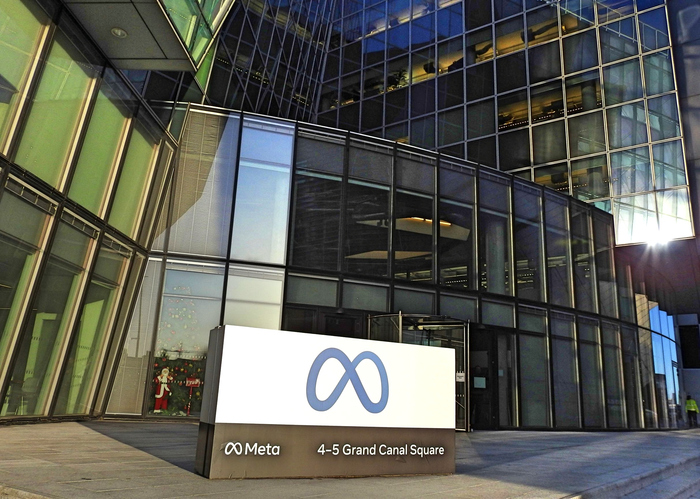May 15, 2025

This information is provided for educational purposes only by Kohn, Kohn & Colapinto and does not constitute legal advice. No attorney-client relationship is created by accessing this content. Laws and regulations may change, and this material may not reflect the most current legal developments. If you believe you have a whistleblower claim, consult a qualified attorney to discuss your specific circumstances.
What is Churning?
Churning refers to the illegal practice by brokers of repeated trading in a client’s account to generate commissions for themselves. Instead of following their client’s investment plan, the broker will instead trade (buy or sell) securities regardless of market conditions.
This constant trading has negative consequences on a client’s portfolio because they are required to cover the transaction costs. This type of fraud is often performed during volatile market conditions, where there are reasons (or excuses) for performing those trades.
Whistleblowers who know of churning happening and put a stop to the fraud may report their information to the Securities and Exchange Commission (SEC). Awards may be available to those who report churning where commissions and other associated fees exceed $1 million.
Continue reading to learn more about churning in finance and how you may become eligible for a whistleblower award and protection.
Red Flags that Might Indicate Churning
Churning, often referred to as burning and churning, occurs when a securities broker enters into transactions and manages a client’s account for the purpose of generating commissions and in disregard of his client’s interests.
Churning is commonly said to have three elements:
- Control of the customer’s account by the broker, either explicit or de facto
- Excessive trading considering the customer’s investment objectives; and
- Scienter — the required state of mind for liability under Section 10(b) and Rule 10b-5
Here are some red flags that might indicate churning in your account:
- High trading activity: If your account has a significantly higher volume of trades than what aligns with your initial investment goals and risk tolerance.
- Unfamiliar investments: The presence of securities in your portfolio that you don’t remember authorizing or that don’t align with your investment goals.
- Poor portfolio performance: Despite frequent trading activity, the overall value of your portfolio is stagnant or declining (as stated previously, due to transaction fees)
- Excessive fees: A significant increase in commissions and fees associated with your investment account.
If you spot any of these red flags, it’s advised that you examine all brokerage statements to identify any suspicious trading activity. Secondly, confront your broker regarding your concerns. Be sure to gather their response in writing in the event you need to report your concerns to the SEC.
Churning can significantly harm an investor’s financial future, so it’s important that they report their concerns immediately if they suspect this happening. Keep in mind that the broker may be engaged in the same activity across multiple client accounts, so the information provided could protect other investors from such unethical activity as well.
The SEC Whistleblower Program
The SEC Whistleblower Program was created in 2010 under the Dodd-Frank Act, which provides monetary incentives and protection to individuals who report possible violations of securities law.
These incentives come in the form of an award, which ranges between 10 and 30% of the monetary sanctions collected in actions brought by the SEC and related actions from other agencies.
The program also prohibits employers from engaging in retaliation for engaging in a protected activity, such as reporting concerns like churning, to the SEC.
What is the SEC Looking For
The SEC will be looking for specific, credible, and timely information that points to excessive trading, including the frequency and size of the trades.
They’ll also look for documentation that shows your investment goals, and how this excessive trading activity goes against those goals.
The SEC will also be looking for any email or voice correspondence that illustrates how the broker pressured you into making trades that did not reflect your investment goals or risk tolerance.
Dates and other financial figures will also help support your complaint. It’s best that you consult with an attorney who specializes in securities fraud to get a complete understanding.
How to Report Churning
With specific, credible, and timely information in hand, you may report your concerns using the SEC’s online Tip, Complaint, or Referral (TCR) system: https://www.sec.gov/whistleblower.
You can also mail your complaint to the SEC Office of the Whistleblower, 100 F Street, NE, Washington, DC 20549, or fax it to (703) 813-9322.
However, keep in mind, to be eligible for an award, you must have an attorney represent you in connection with your submission.
You can choose to report anonymously, and the SEC are committed to fully protecting your identity. Your information may however need to be used in administrative or court proceedings, where documents with personal information is required.
What happens once my tip regarding churning is received by the SEC?
When you file a tip, complaint, or referral with the SEC, it doesn’t go unnoticed. Every piece of information you provide gets reviewed thoroughly by their Enforcement Division. This means your report has the potential to make a real difference.
The SEC can use the details you share in multiple ways. They might launch a full-scale investigation based on your tip, uncovering misconduct by a broker or brokerage firm. In other cases, your report could lead the SEC to examine a specific company or take a closer look at their public filings. This broader review might reveal more widespread problems that require regulatory action.
By reporting churning, you’re not just protecting yourself, you’re helping the SEC safeguard the entire financial system.
How do I apply for an award?
The SEC will post on this website Notices of Covered Action (“NoCA”) exceeding $1 million in sanctions so that whistleblowers who believe they voluntarily submitted new information that was used in the Covered Action will have an opportunity to apply for a whistleblower award
Seeking Legal Assistance
If you believe you’re broker is churning on your account and have identified one or more of the red flags above, we suggest getting in touch with one of our experienced SEC whistleblower attorney’s today. We’ve been helping securities fraud whistleblowers since the inception of the award program in 2010, and even helped write the rules that make up the laws that protect and incentivize whistleblowers.
Furthermore, our team is made of up the world’s leading attorney’s and securities professionals, including Of Counsel Allison Herren Lee, former commissioner and Acting Chair of the SEC, and Stephen M. Kohn, who is behind some of the largest awards in history. There is no case we can’t handle – get in touch for a free and confidential case evaluation if you suspect your broker is engaged in churning.
Our Firm’s Cases

Environment & Human Rights Violations Exposed
Oil industry’s environmental crimes and cover-up in Colombia have been exposed. Whistleblower Andrés Olarte Peña, with the support of his attorneys Kohn, Kohn & Colapinto and the damning evidence compiled in the Iguana Papers, is calling for an investigation into Ecopetrol and its executives by the Colombian government and the U.S. Securities and Exchange Commission.

$30 Million Award
Protecting the confidentiality of Wall Street whistleblowers is among the most important breakthroughs in federal whistleblower law. Under the Dodd-Frank Act, whistleblowers can file anonymous cases, and everything about their case, including who they sued, remains secret.

$13.5 Million Award
Our firm represented an anonymous whistleblower, who on May 17, 2021, received a whistleblower award of almost $13.5 million. The SEC has issued more than $31 million in whistleblower awards related to this case.
![Reporting Recordkeeping Failures To The Sec [2025 Guide]](https://kkc.com/wp-content/uploads/2025/01/Recordkeeping-Failures.jpg)




